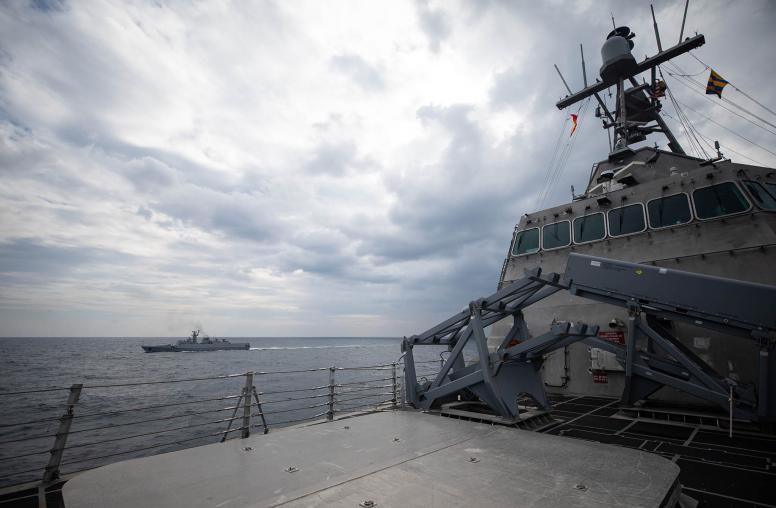Sports and Peacebuilding Symposium
Sports have been used as a way to build trust, teamwork and social cohesion from the international to the neighborhood level for thousands of years. Scholars and advocates alike assert that it can also serve to improve security, reintegrate traumatized populations, break down stereotypes and reconcile torn societies and groups in the context of violent conflict. On October 26, 2010, USIP held a symposium Tuesday addressing the impact of sports and peacebuilding.
Read the event analysis, Sports as a Metaphor and Tool for Peacebuilding
The United States Institute of Peace held a symposium Tuesday, October 26 on sports and peacebuilding. Sports have been used as a way to build trust, teamwork and social cohesion from the international to the neighborhood level for thousands of years. Scholars and advocates alike assert that it can also serve to improve security, reintegrate traumatized populations, break down stereotypes and reconcile torn societies and groups in the context of violent conflict.
At the USIP event, three panels of leading experts joined the Institute and an audience of policymakers, nongovernmental organization representatives, academics, athletes, and others involved in the field of conflict management and resolution, to discuss the role of sports in preventing conflict, managing or resolving conflict, and stabilizing a post conflict environment.
The panels included:
- Panel 1 examined the historical perspective of sports and peacebuilding;
- Panel 2 focused on the institutions and organizations involved in such sport efforts;
- Luncheon presentation highlighted U.S. Paralympics activities; and
- Panel 3 addresseed evaluation of sports’ contribution to peacebuilding.
Speakers
- Dr. Victor Cha
Director of Asian Studies, Georgetown University, Author, “Sports Diplomacy and the Olympics in Asia”, Former Director for Asian Affairs, National Security Council - Dr. Dean Ravizza
Assistant Professor, Salisbury Universitys - Eric Dienes
Liaison Officer, United Nations Office on Sport for Development and Peace - Nina Bishop
Director of International Sports Initiatives Bureau of Educational and Cultural Affairs, Department of State - Amy Farkas
Sport for Development Specialist, UNICEF - Brendan Tuohey
Founder, Peace Players International - Charlie Huebner
Chief of Paralympics, United States Olympic Committee - Dr. Diana Chigas
Professor of Conflict Resolution, The Fletcher School, Tufts University and Co-Director, Reflecting on Peace Practice Project, CDA Collaborative Learning Projects - Dr. Sarah Hillyer
Generations for Peace Post-Doctoral Fellow, Georgetown University - Dr. Peter Donnelly
Professor of Sports Policy, Co-Editor, “Inside Sports”, University of Toronto - Michael Shipler
Senior Programme Advisor, Search for Common Ground - Tara Sonenshine
Executive Vice President, U.S. Institute of Peace - Mike Lekson
Deputy Provost, Academy for International Conflict Management and Peacebuilding, U.S. Institute of Peace - Kathleen Kuehnast
Gender Adviser, U.S. Institute of Peace - Ted Feifer
Dean of Students and Acting dean of Institutional Outreach, Academy for International Conflict Management and Peacebuilding, U.S. Institute of Peace
Explore Further
- Watch the event videos
- USIP "On the Issues: Preventing Conflicts and Peacebuilding through Athletic Competition"
- Michael Shipler's Video - "The Team"
- Amy Farkas Video - "Rebuilding Ugandan communities through sport"
- Eric Dienes Video - "Sport as a Tool to Achieve the U.N. Millenium Development Goals"




